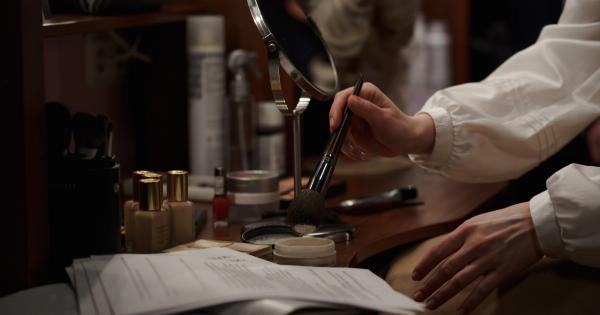Itchy and irritated skin can be a frustrating and uncomfortable experience.
Scratching the affected area may seem like the easiest solution to alleviate the irritation, but this can often lead to further damage to your skin, increasing the risk of infection. Fortunately, there are several ways to treat skin irritation, without resorting to scratching. Here’s everything you need to know.
1. Identify the Cause of Your Irritation
Before taking any steps to treat your skin irritation, it’s important to identify the cause. This will help you select the most effective treatment and avoid further irritation. Common causes of skin irritation include:.
- Allergies to products, foods, or environmental factors
- Insect bites or stings
- Dry skin
- Heat rash
- Skin infections, such as eczema or psoriasis
If you are unsure what is causing your skin irritation, make an appointment with a dermatologist, who can accurately diagnose and treat the condition.
2. Moisturize Your Skin
Dry skin is a common cause of skin irritation, particularly in colder weather. Combat this by regularly moisturizing your skin with a fragrance-free, gentle moisturizer to keep your skin hydrated and supple.
This can help reduce itching and prevent further irritation.
3. Apply a Cold Compress
A cold compress can help soothe irritated skin and reduce itching. Use a cloth or towel soaked in cold water or an ice pack wrapped in a towel, and apply to the affected area for around 15-20 minutes.
Do not apply ice directly to your skin, as this can cause further damage.
4. Take an Oatmeal Bath
Oatmeal has anti-inflammatory properties that make it an excellent remedy for irritated skin. Fill a bathtub with lukewarm water and add two cups of colloidal oatmeal (finely ground oatmeal) to the water. Soak in the bath for around 15-20 minutes.
This can help reduce redness and itching while also moisturizing your skin.
5. Use Over-the-Counter (OTC) Anti-Itch Creams
If you’re experiencing a mild case of skin irritation, using an OTC anti-itch cream or ointment can provide relief. These creams essentially work to numb the affected area. Be sure to read the label carefully and follow the instructions closely.
Avoid using these creams on broken skin, as they can cause further irritation.
6. Avoid Scratching at All Costs
Although scratching may provide temporary relief, it can also cause further damage and lead to infection. Instead, distract yourself from the urge to scratch by applying a cold compress or taking an oatmeal bath.
If you must scratch, use a clean, dry cloth to apply pressure to the affected area instead of using your fingernails, which can tear and break the skin.
7. Keep the Affected Area Clean and Dry
Keeping the affected area clean and dry is essential to prevent further irritation. After washing, gently pat the area dry with a towel, and apply a fragrance-free moisturizer to keep the skin hydrated and healthy.
8. Seek Medical Attention for Severe Irritation
If your skin is severely irritated or you have other symptoms like fever, it’s essential to seek medical attention. Your doctor may prescribe a more potent topical cream or medication to alleviate the irritation and prevent infection.
9. Wear Loose, Comfortable Clothing
Tight or synthetic clothing can trap moisture and heat, leading to further irritation. Instead, opt for loose and breathable clothing made from natural fibers like cotton or linen to keep your skin cool and dry.
10. Hydrate Your Body
Dehydration can dry out your skin, leading to further irritation. Drink plenty of water to keep your body hydrated and your skin healthy. Avoid alcohol and caffeine, as these can dehydrate you more.






























